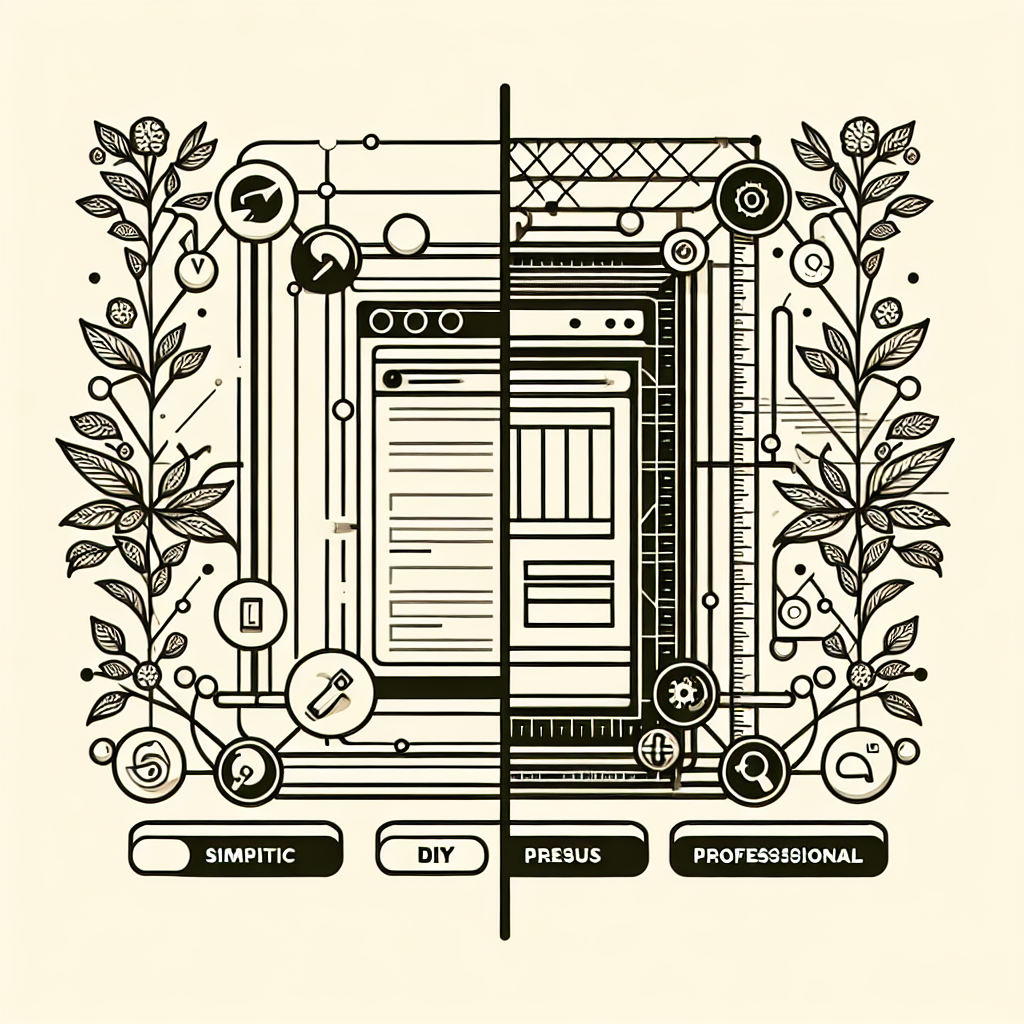
In today’s digital landscape, having a strong online presence is essential for any business. Whether you’re a budding entrepreneur or an established small business, the decision between DIY website design and hiring a professional web designer is crucial. Each option has its own set of advantages and challenges. Understanding these can help you choose the best path for your specific needs, budget, and goals. Let’s dive into the specifics of DIY website creation and professional web design to determine which is right for you.
Understanding DIY Website Design
DIY web design has become increasingly popular, especially with the rise of user-friendly website builders like Wix, Squarespace, and WordPress. These platforms enable users with little to no coding experience to create visually appealing websites.
Pros of DIY Website Design
One of the most significant advantages of a DIY website is cost-effectiveness. With a limited budget, many small business owners opt for this route. You can often create a fully functional website for a fraction of the price of hiring a professional. Additionally, DIY platforms usually offer various templates and customization options that allow you to express your brand’s identity without needing extensive technical knowledge.
Another benefit is control. When you design your website, you have complete autonomy over the look and feel, content, and functionality. You can make changes on the fly, ensuring that your website evolves as your business does. This flexibility is particularly appealing to small businesses that are continuously adapting to market changes.
Cons of DIY Website Design
However, DIY web design isn’t without its drawbacks. The learning curve can be steep. Even with user-friendly platforms, you might find yourself frustrated. Building a website that looks professional and functions seamlessly requires time and effort. If you lack design skills, your website may end up looking amateurish, which can deter potential customers.
Moreover, SEO optimization is crucial for visibility. DIY platforms often provide basic SEO tools, but they may not be sufficient for advanced strategies that can help your small business website rank higher in search results. Without a solid understanding of SEO principles, even a well-designed DIY site can struggle to attract traffic.
Exploring Professional Web Design
On the other end of the spectrum is professional web design. Hiring an expert can significantly enhance your website’s quality and performance.
Benefits of Professional Web Design
One of the most compelling reasons to hire a professional is the expertise they bring. A professional web designer understands the intricacies of design, user experience, and SEO. They can create a website tailored to your specific needs, ensuring that it looks polished and functions seamlessly.
Additionally, professional designers often conduct thorough research on your target audience, competitors, and industry trends. This knowledge helps them craft a website that not only looks great but also meets the needs of your potential customers. A well-designed small business website can lead to increased engagement and conversions.
Another advantage is time-saving. Building a website from scratch can be a time-consuming process. By outsourcing this task, you can focus on what you do best—running your business. This can be particularly beneficial for small business owners who wear many hats.
Drawbacks of Professional Web Design
Despite the benefits, there are downsides to consider. The most apparent is the cost. Hiring a professional web designer or agency can be expensive, often costing thousands of dollars. For small businesses with tight budgets, this can be a significant barrier.
Furthermore, relying on someone else to manage your website means you may have less control over the project. While you can provide input, the final decisions rest with the designer. This can lead to frustration if their vision doesn’t align with yours.
Assessing Your Needs
Determining whether DIY website design or professional web design is right for you depends on several factors. Consider your budget, your technical skills, and how much time you can dedicate to the project.
Budget Considerations
If you’re on a tight budget, a DIY website might be the best option. However, if you can allocate funds for a professional, the long-term benefits may outweigh the initial costs. Investing in a well-designed website can result in higher returns, as it often leads to better customer engagement and increased sales.
Time and Technical Skills
Evaluate your time and skills. If you have experience with web design and can dedicate the time to learning and building a website, a DIY approach might work well for you. Conversely, if you’re busy managing other aspects of your business, hiring a professional could save you significant time and hassle.
Making the Right Choice for Your Small Business Website
Ultimately, the decision between DIY and professional web design comes down to your unique situation. If you choose to go the DIY route, make sure to invest time in learning the ins and outs of the platform you select. Take advantage of the resources available, such as guides, forums, and tutorials.
However, if you opt for professional design, do your research. Look for a designer or agency with experience in your industry. Check their portfolio and client testimonials to ensure they can deliver the quality you expect.
Conclusion
Both DIY website design and professional web design have their merits and challenges. The right choice depends on your specific needs, budget, and goals. By weighing the pros and cons of each option, you can make an informed decision that best supports your small business website’s success. Whether you choose to design it yourself or hire an expert, remember that your website is a crucial tool for reaching your audience and driving growth.
